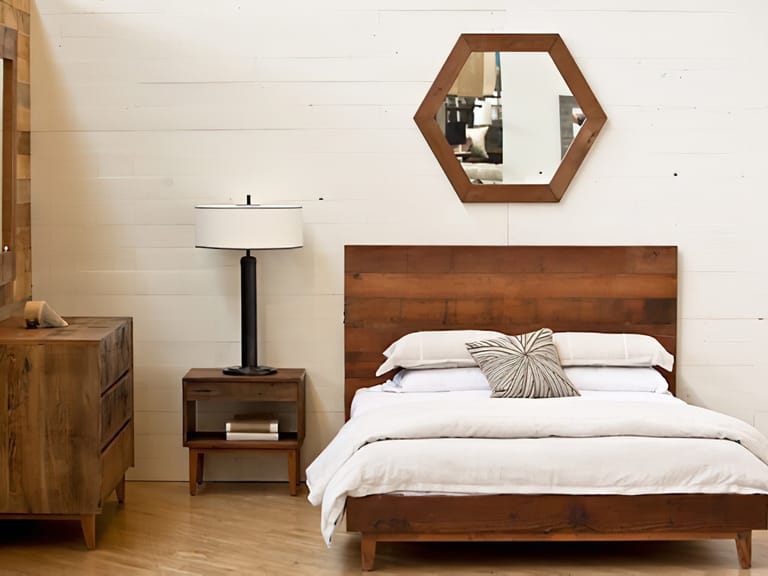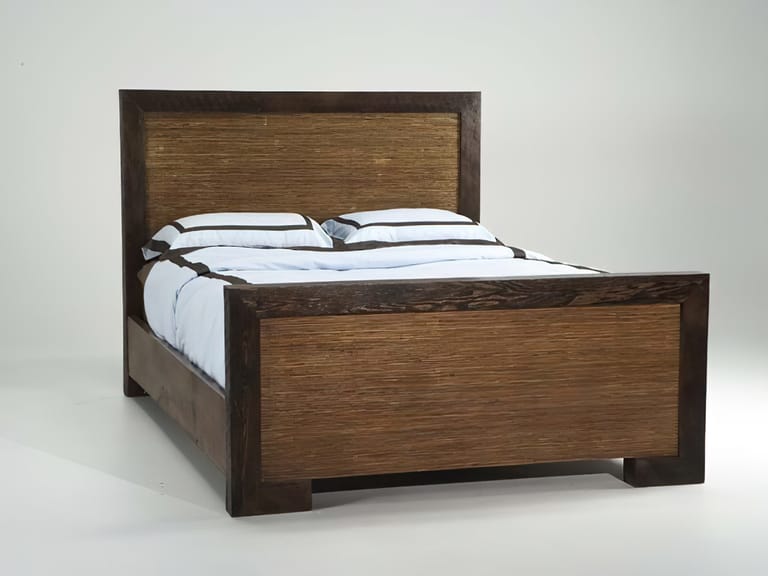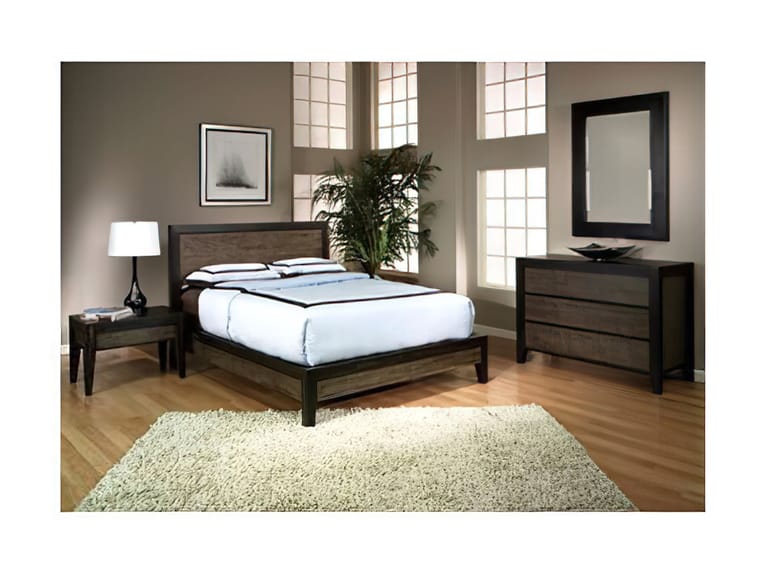The Future of Eco-Friendly Furniture: Trends to Watch
As sustainability becomes a priority for consumers, the furniture industry is undergoing significant transformations. This article explores emerging trends in eco-friendly furniture design, from innovative materials to circular economy practices, offering insights into what to expect in the coming years.
The Rise of Eco-Friendly Materials
The furniture industry is increasingly embracing sustainability, leading to a wave of innovative practices that prioritize eco-friendliness. One key trend is the use of reclaimed materials, which not only reduces waste but also adds unique character to each piece. Brands are now using materials like reclaimed wood, which tells a story with every scratch and knot, bringing history into modern homes.
For instance, the Urban Woods Wilshire Bed exemplifies this trend perfectly. Crafted solely from reclaimed wood, it features a generously-sized headboard and is finished with non-toxic, low-VOC acrylics. This bed not only enhances the aesthetic of any bedroom but also supports an eco-friendly lifestyle. With clean lines that fit into modern or traditional decor, the Wilshire Bed is a stunning example of how sustainability can marry beauty.
Urban Woods Wilshire Bed

Description: Warm and inviting, this bed is made solely from reclaimed wood and is non-toxic and eco-friendly.
Innovative Manufacturing Practices
Another significant trend is the shift toward innovative manufacturing practices that minimize waste and carbon footprints. Furniture manufacturers are increasingly adopting circular economy principles, focusing on designing products that can be disassembled and recycled at the end of their life cycle. This approach not only reduces waste but also ensures that valuable materials are reintroduced into the supply chain.
Key Influencers in Eco-Friendly Furniture Design
Throughout history, several key figures have influenced the direction of furniture design, particularly concerning sustainability. Here are three notable individuals:
- William Morris (1834-1896): A British designer and activist, Morris was a key figure in the Arts and Crafts Movement, advocating for craftsmanship over industrial production. His emphasis on handmade goods and natural materials laid the groundwork for modern sustainable practices.
- Charles Eames (1907-1978): An American designer and architect, Eames is best known for his innovative furniture designs that emphasized form and function. His use of new materials and techniques inspired a generation of designers to consider sustainability in their work.
- Patricia Urquiola (1961-present): A contemporary Spanish designer, Urquiola has made waves in the industry with her focus on sustainable materials and manufacturing processes. Her designs often incorporate recycled and eco-friendly materials, proving that style and sustainability can go hand in hand.
Biodegradable Options and the Future
In addition to reclaimed materials, brands are exploring biodegradable options, ensuring that furniture has a minimal environmental impact throughout its lifecycle. Materials like mycelium, a fungus-derived substance, are gaining traction as alternatives to traditional plastics and foams. This shift towards biodegradable materials not only addresses waste issues but also aligns with the growing consumer demand for eco-friendly practices.
Consumer Engagement and Education
As consumers become more aware of their environmental impact, engaging them through education is crucial. Brands are creating platforms to inform consumers about sustainable practices and the importance of eco-friendly choices. This transparency fosters trust and encourages consumers to make informed decisions when purchasing furniture.
Conclusion: The Path Forward
As we look to the future, the furniture industry is poised for a significant transformation. With an increasing focus on sustainability, innovative practices, and consumer education, eco-friendly furniture is more than just a trend; it is becoming a standard. The incorporation of reclaimed materials, the adoption of circular economy principles, and the influence of key historical figures in design all contribute to a brighter, more sustainable future in furniture design.
By embracing these trends, consumers can not only enhance their homes but also contribute to a healthier planet. The Urban Woods Wilshire Bed and similar products represent a shift towards responsible consumption, reminding us that our choices matter in the grand tapestry of sustainability.

